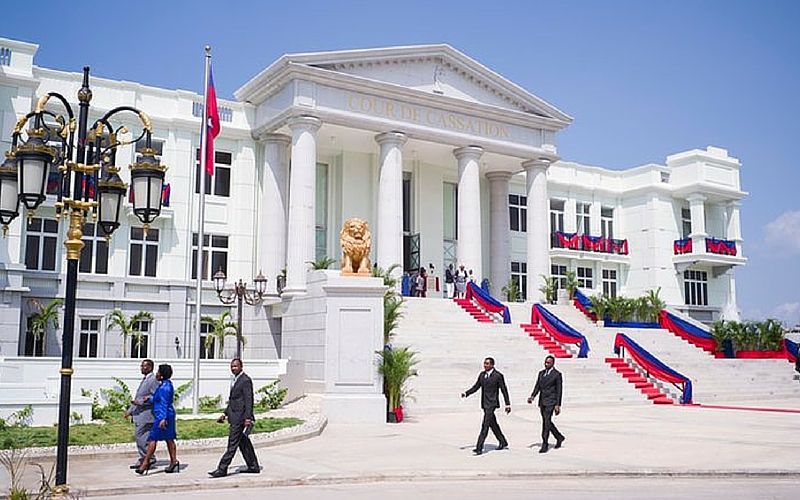In the late 18th century, an uprising led by former slave General Toussaint L’Ouverture became the first successful slave insurrection in the west. It led to the establishment of the first black republic and was the inspiration for many anti-slavery movements in the United States and around the world. Haiti’s nearly half million slaves revolted and won their freedom against the French. Haiti became the first black republic to declare independence in 1804. Saint Domingue, where the nation of Haiti is located, was the only place where slaves successfully revolted to create a nation. Toussaint L’ouverture’s heritage has been traced back to the West African country of Benin, further proof of the strong ties that Haiti has with the African people.
[slideshare id=60917063&doc=haiti-160414142546]
The early history of Hispaniola shows the island was inhabited by the native Taino Amerindians who were living there when Christopher Columbus arrived in the Americas in 1492. The Taino-Amerindians were systematically annihilated by Spanish settlers within 25 years of their arrival. By the early 17th century, the French established a presence on the island of Hispaniola (modern day Haiti and Dominican Republic). In 1697, Spain ceded to the French the western third of the island, which later became Haiti. The French colony of Haiti, was the sugar capital of the world, an important commodity at the time. The French had ignored the plight of slaves in the harvesting of sugar cane. A slave coming from Africa was not expected to last more than 3 years because it was a very brutal human resource management system. Slaves were constantly whipped, tortured, amputated if they ran away, even hung and left to die. On August 27, 1791, the slaves revolted, attacked their masters and won their independence.
After, Haiti joined the United Nations it advocated for African countries to gain independence from colonialism. This action did not go unnoticed by Haiti’s neighbors in the western hemisphere who supported and benefited from looting African resources to fund western countries in colonialism.
Today, Haiti remains a relatively poor country in the Western Hemisphere, not because the people are lazy or incapable of governing their own affairs but because of their American neighbor who since the revolution has sought to undermine anything positive. The source of Haiti’s poverty can be traced back to 1804 when they overthrew the French colonialists and were forced to pay plantation owners. The French demanded crippling indemnity payments that still haunt Haiti to this day. In addition, the United States refused to recognize Haiti for 60 years and would not trade or communicate with them. Additionally, in 1915, United States Marines looted Haiti’s national treasury, the equivalent of any country’s central bank reserves. To date, the United States has never returned any pf the loot they stole.
Haiti was expected to join the African Union in 2013 but to date there has been no news of when this will become official. Senegal and the Democratic Republic of Congo for example, already maintain strong ties with Haiti and have Haitian professionals working in their countries. Joining the African Union would help Haiti open doors of trade with the African continent and it would immensely benefit from the camaraderie of other African countries. Perhaps, they would also learn how to secure partnership agreements with other non western countries. However, it is baffling why Haiti’s interest in joining the African Union has become a concern for certain western powers.





2 responses to “Haiti and the African Union”
There is hope for Haiti if they continue to perservere
Warriors from the beginning to the end!!!